One interesting possibility presented by the charges filed by the NC State Bar against Defendant Nifong is the enhanced potential for civil liability resulting from a determination of misconduct by the Disciplinary Hearing Commission. It appears that the actions outlined in the complaint fall outside of Defendant Nifong’s role as a prosecutor and thus the actions described are not protected by the absolute immunity normally afforded a prosecutor.
"Ordinarily, prosecutors enjoy absolute immunity from civil liability in connection with their pursuit of a criminal case. That makes sense: As the Supreme Court has commented, exposing prosecutors to civil liability would undermine the functioning of the criminal justice system.
"But, not all prosecutorial conduct enjoys absolute immunity. To the contrary, in
Buckley v. Fitzsimmons, the Supreme Court held that a prosecutor was not absolutely immune from civil liability for false statements made in a press conference and for other pre-trial investigative conduct; in that case, only "qualified immunity" applies.
"The Court explained that this is because "[t]he conduct of a press conference does not involve the initiation of prosecution, the presentation of the state's case in court, or actions preparatory for these functions." In other words, press conferences aren't an integral part of the prosecutor's job; they are an extra function that he chooses to perform. Prosecutors could opt not to do any press conferences, if they so chose, and
still perform all the core duties of prosecution.
"Thus, there may indeed be a way for the defendants, if acquitted, to sue D.A. Nifong for malicious prosecution: They must hinge their claim on his statements at press conferences."
Spilbor
The burden of proof (preponderance of evidence) required in the anticipated civil suit is notably less than the burden of proof required by the State Bar Disciplinary Hearing Commission (clear, cogent, and convincing evidence). It stands to reason that, if Defendant Nifong is found to have committed misconduct by the higher standards of the DHC, he is likely to be found liable by a civil court requiring a lower standard of proof. Irregardless of what determination is made by the DHC, the simple fact that the charges were referred by the Grievance Committee, after careful evaluation as well as equal consideration of Defendant Nifong’s required initial response, bodes well for the prospect of a successful civil suit against Nifong.
With Defendant Nifong facing these charges, which will likely take months to resolve, as well as additional charges certain to follow from the State Bar and eventual civil suits, it appears likely that da is destined to wear the Defendant moniker for quite some time.
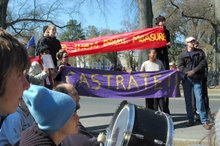




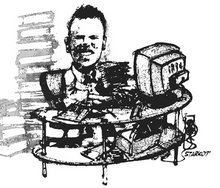
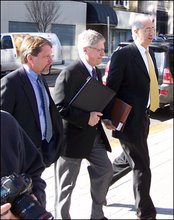
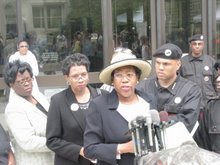
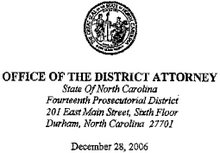
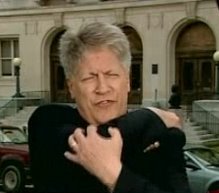





















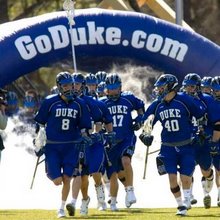

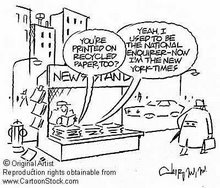

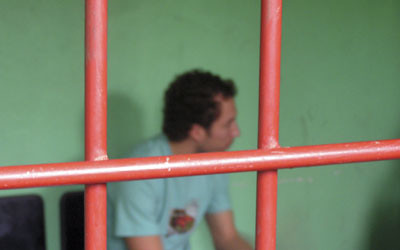



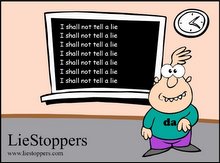






12 comments:
Good, Nifong can start spending his maoney on defense lawyers.
from a non-lawyer: As I understand it, that in his role in the lineups as "inspector DA", he has only qualified immunity as well. So I am sure that the defense attorney would welcome complaints being investigated regarding the bogus lineups. Correct me if I am wrong.
I wonder if colateral estoppel applies? Colateral estoppel says (dumbing it down a bit) that if you lose on some issue under as high or higher a standard of proof, you can't argue that issue in a later case under a lower standard of proof.
For example, if you are found guilty of murdering someone (beyond a reasonable doubt) you can't argue in a later civil suit (preponderance) that you didn't kill the person.
BTW, for you Law and Order fans out there, the one time they mentioned it they got it wrong. It doesn't apply the other way around. If you are found not guilty, the other side in a civil case can still argue that you did it. (See OJ)
I don't know whether it applies to hearings before the bar.
This case has it all, Now Tom Delay is weighting in on justice.
You should know Tom. Where is lawyer Antoun when we need him?
The North Carolina Conference of District Attorneys said Friday the prosecutor at the center of the Duke lacrosse sexual assault case should recuse himself.
7 DAs signed it.
Actually, from what I read, collateral estoppel can be applied both offensively and defensively, though I don't think this would be such a case. I'm not a lawyer, but I think collateral estoppel would not apply in a civil trial in this case unless Nifong were convicted by the State bar, in which case Nifong may possibly be estopped from presenting an "actual innocence" defense. In practice, I don't see that happening since that would deny him the right to any defense in this case, but again, I'm not a lawyer.
Collateral estoppel
I'm a little confused... Mike Peterson was convicted of 1st degree murder in the death of his wife Kathleen. If collateral estoppel says that he can't argue in a civil suit that it is not true, why would the judge in the case even need to 'rule' that he was liable for her death? Why wouldn't that just be a 'given' and the civil case become just an issue of damages?
Note - the case has, based on the judges ruling, become just an issue of damages, just wondering why he even had to make the ruling...
Thanks Liestoppers
Great point there! It was posted on the board that NC does not have homestead law. It looks like Mike may have to worry about a place for his family to live.
Everyone, one step at a time. He has to be convicted by the NC State Bar first, and the Duke 3 have to be acquitted, the latter of which I cannot understand why it hasn't happened yet. They're not saints. They're young men in their early 20s, with everything that entails. However, they are innocent of the crime of which they are accused.
To the 5:20: You are correct. Nifong's actions in regard to the unconstitutional line-up would not be protected by a prosecutor's "absolute immunity," but only by the "qualified immunity" afforded to police officers.
Collateral estoppel can only ever be used against the person who lost earlier.
It can apply offensively or defensively. Offensively if the person on defense lost earlier, defensively if the person on offense lost earlier.
A defendant who wins a criminal case can't use it in a civil case for two reasons. First, because the standard of proof in a criminal case is higher, second, because it can only ever be used against a loser. In the criminal case, the loser was the State, in the civil case the defendant is being sued by an individual, not the state.
The judge in the Peterson case ruled that he was responsible for the murder based on the criminal conviction. If Peterson had been found not guilty at criminal trial, then the jury in the civil case has to make that decision.
A ruling by a judge is not the same as a finding. Generally, rulings are on matters of law, findings are on matters of fact.
In a jury trial, the jury decides on questions of fact, the judge decides on questions of law.
In the Peterson case, the judge was effectively saying "as a matter of law, we take it as already proven that he did it, so there is no question of fact about this issue for the jury to decide".
Collateral estoppel isn't automatic, if the plaintiff's lawyers in the Paterson case hadn't bothered to invoke it, then the case would have gone on as if he hadn't been covicted. They would then have had to prove to the civil case jury that he did it.
Of course, that would have been malpractice on their part, but theoretically, they could have done it that way.
Thanks, 7:38. I didn't quite understand the Wiki on it. Makes a hell of a lot more sense with practical examples. :)
Post a Comment